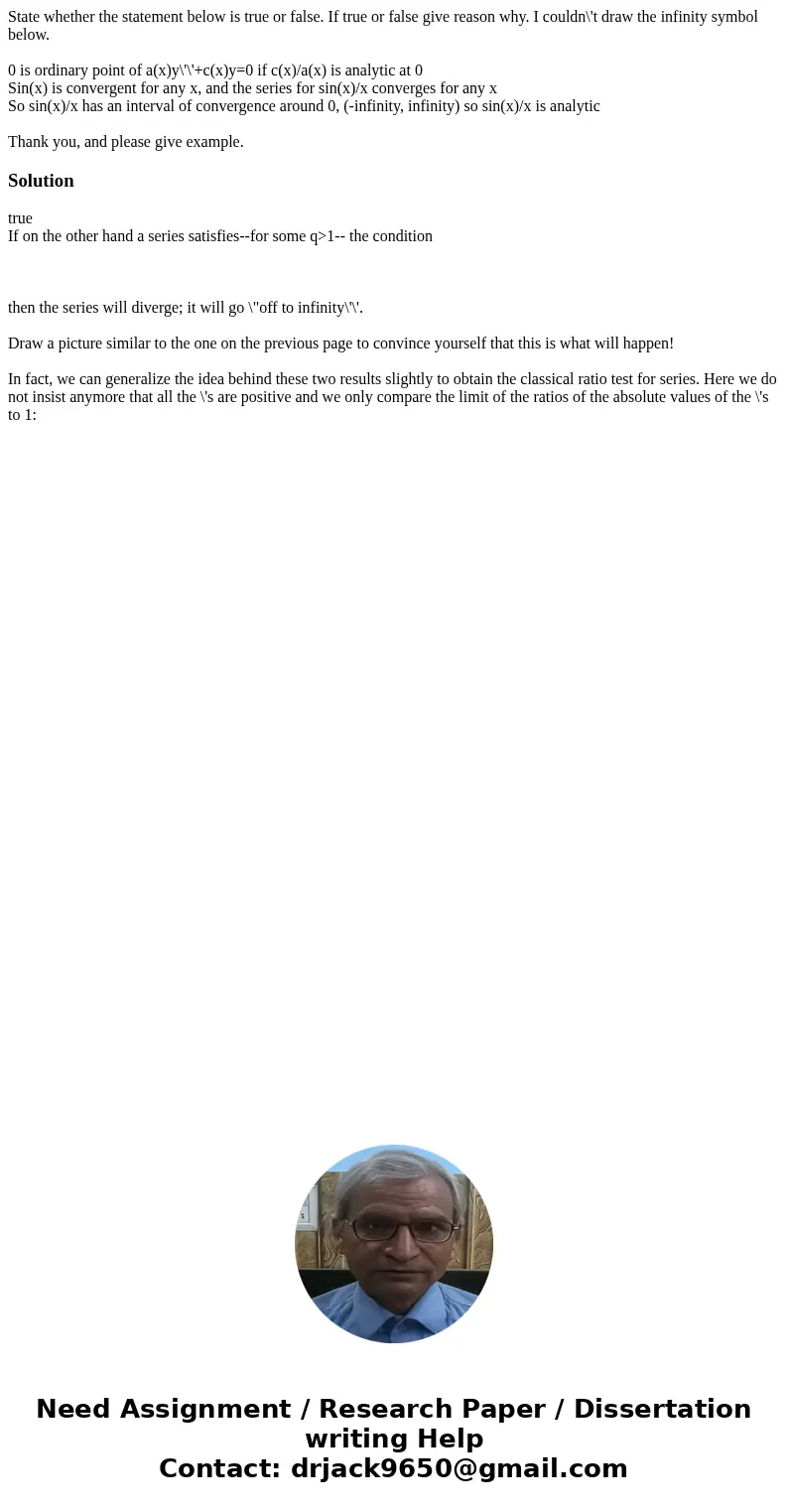State whether the statement below is true or false If true o
State whether the statement below is true or false. If true or false give reason why. I couldn\'t draw the infinity symbol below.
0 is ordinary point of a(x)y\'\'+c(x)y=0 if c(x)/a(x) is analytic at 0
Sin(x) is convergent for any x, and the series for sin(x)/x converges for any x
So sin(x)/x has an interval of convergence around 0, (-infinity, infinity) so sin(x)/x is analytic
Thank you, and please give example.
0 is ordinary point of a(x)y\'\'+c(x)y=0 if c(x)/a(x) is analytic at 0
Sin(x) is convergent for any x, and the series for sin(x)/x converges for any x
So sin(x)/x has an interval of convergence around 0, (-infinity, infinity) so sin(x)/x is analytic
Thank you, and please give example.
Solution
true
If on the other hand a series satisfies--for some q>1-- the condition
then the series will diverge; it will go \"off to infinity\'\'.
Draw a picture similar to the one on the previous page to convince yourself that this is what will happen!
In fact, we can generalize the idea behind these two results slightly to obtain the classical ratio test for series. Here we do not insist anymore that all the \'s are positive and we only compare the limit of the ratios of the absolute values of the \'s to 1:

 Homework Sourse
Homework Sourse